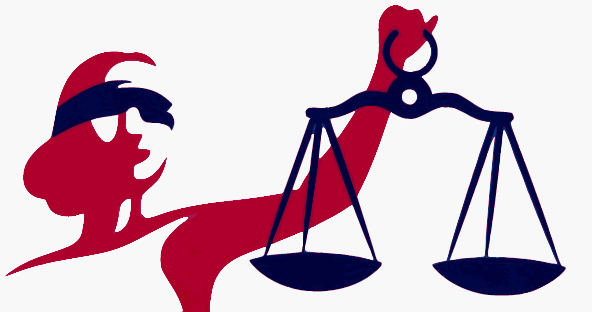Narges Achikzei, who was set on fire, and her boyfriend had a heated conflict with the woman's 32-year-old former employer in Utrecht. The family is associated with fraudulent practices. In any case, they were accused by an aggrieved man. He himself was summoned to a court one week after the fire murder in connection with the slander. For a long time he is said to have sent e-mails to the woman - an ex-worker - and damaged her honour and good name.
It is very likely that this conflict played a role in the cruel death. The public prosecutor's office never wants to answer questions about the content of the legal conflict. It is clear that the conflict exerted great pressure on Achikzei and other participants.
Decision 
COURT IN THE MIDDLE OF THE NETHERLANDS
CHALLENGE ROOM
Location: Lelystad
Case number / application number: 470287 / HA RK 18-322
Decision of the Multiple Board of Appeal for Challenge Cases of
December 7, 2018
at the request of a person within the meaning of Article 512 of the Code of Criminal Procedure (hereinafter: CCP)
of:
Ralph Geissen,
residing in Utrecht,
(hereinafter referred to as the applicant).
1. The procedure
1.1. The report of the hearing of the police judge of 8 November 2018 shows that during the hearing, the applicant submitted a request for challenge of the judge and, in doing so, formulated grounds for the request. By letter dated 20 November 2018, the applicant sent documents to the challenge chamber. During the hearing of the request for a challenge, the challenge chamber had not yet received these documents. At the hearing, the challenge chamber proposed to the applicant that after the hearing, the challenge chamber would read the documents that had been sent to it and would take into account the content of those documents in its judgment. The applicant has agreed to this. The challenge chamber received the documents on 28 November 2018.
1.2. On 23 November 2018, the request for a challenge was dealt with in public by the multiple chamber for the handling of cases of challenge (further: the challenge chamber). The applicant appeared at the oral hearing. The challenged judge and the officer of the Justice Department did not show up with notice.
1.3. The decision has been made today.
2. The request for challenge
2.1. The request for challenge is directed against G.A. Bos as the court hearing the case (hereinafter to be referred to as: the court) in the case with the public prosecutor’s number 16.659070-18. In this case a hearing of the police judge took place on 8 November 2018. At this hearing the applicant requested that his criminal case be referred to the multiple criminal division and that information be requested from the ABN-AMRO bank. The police court rejected the request for referral to the multiple chamber on the grounds that it had read the suspect’s statement of defence and the criminal file correctly and did not consider referral to the court necessary. Nor did the police court consider it necessary to carry out the requested investigations. The applicant then challenged the court. He based his request for a challenge on the fact that the court did not wish to refer the criminal case to the multiple chamber and that it rejected his request for an investigation.
2.2. The judge did not resign herself to the challenge.
2.3. In an e-mail dated 20 November 2018, the Public Prosecutor announced her response to the request for a challenge, stating that the rejection of further investigation by the police judge cannot reasonably be regarded as bias on the part of the judge.
3. The assessment
3.1. Article 512 of the Code of Criminal Procedure provides that any of the judges hearing a case may be challenged at the request of the accused or the public prosecutor’s office on the basis of facts and circumstances which could damage the impartiality of the judiciary.
3.2. In a challenge procedure, the challenge chamber investigates whether the judge’s impartiality suffers damage. A judge is deemed to be impartial until the contrary is established. The latter may be deemed to exist if, from his or her conviction or conduct
personal bias against a litigant. In addition, a litigant may get the impression that the judge is biased. The point of view of the trial party is important here, but does not play a decisive role. The decisive factor is whether the fear of partiality is objectively justified. If bias or a justified presumption of bias is established, judicial impartiality is harmed. The challenge chamber will assess the request for challenge on the basis of the above-mentioned criteria.
3.3. Decisions of a judge to request a referral of a criminal case to another forum and to carry out further investigation, whether or not to be granted, are interim decisions. A judicial (interim) decision as such can, in view of the closed system of legal remedies never constitute grounds for objection: objection is not a disguised legal remedy. The challenge chamber does not have the right to decide on the correctness of the (interim) decision or on the failure to decide. This judgment is reserved for the court that is charged with the handling of the case in the event that a legal remedy is used. When answering the question whether and to what extent this also applies to the reasoning of the (interim) decision, the starting point must be that the closed system of legal remedies also opposes the fact that this reasoning can form a ground for challenge, even if it concerns a reasoning that is incorrect, incomprehensible, deficient or considered to be too brief or because of the lack of a reasoning. This is only different if the reasoning of the (interim) judgment in the light of all the circumstances of the case and measured according to objective criteria – for example by the wording used in the reasoning – can only be understood as a sign of bias on the part of the court that gave it.
3.4. The challenge chamber must therefore assess whether the exceptional situation is such that the reasoning of the decision of the police judge rejecting the applicant’s requests is of such a nature that it cannot be interpreted in any other way than as an expression of bias against the applicant. It is not apparent that such a situation exists, not even in the light of the contents of the applicant’s letter and annexes of 20 November 2018. The challenge chamber will therefore consider the request for challenge unfounded.
4. The decision
The challenge chamber:
4.1. declares the request for challenge unfounded.
4.2. orders the clerk of the challenge chamber to send this decision to the applicant, the challenged judge, other parties concerned, as well as to the president of this court and the president of the criminal, family and juvenile justice section of this court.
4.3. determines that the applicant’s proceedings with prosecutor’s number 16.659070-18 must be continued in the state in which it was at the time of the suspension because of the request for challenge.
This decision was made by C.A. de Beaufort, chairman, G.J.J.M. Essink and R.M. Berendsen, as members of the challenge chamber, assisted by K.F. van Dam, registrar, and pronounced in public on 7 December 2018.
the clerk the chairman

There is no appeal against this decision

Latest posts
-
European Report: Dutch Police Fail in Handling Honor-Based Violence
-
Husband (42) arrested after death of 33-year-old woman in Zaltbommel, Netherlands
-
Honor Killing in Kabul, Afghanistan? The Disappearance and Death of 17-Year-Old Farkhunda
-
Cover-up honor killing of Narges Achikzei: 240 testimonies expose years of deliberate negligence by the Inspectorate of Justice and Security
-
Disappearance of Yildiz Kayali leads to severe punishment for partner
-
Honor Killing in Eskilstuna, Sweden: Abier Murdered for Wanting a Divorce
-
Honor Killing in Mailsi, Pakistan: Mother-in-law Set on Fire After Refusal of Reconciliation
-
Honor Killing in Nahavand, Iran: 26-Year-Old Athlete Raheleh Siyavoshi Murdered by Her Husband
-
Suspected Honor Killing of Young Engineer in India
-
Honor Killing in Uttar Pradesh, India: 17-Year-Old Girl Shot Dead by Father and Brother
